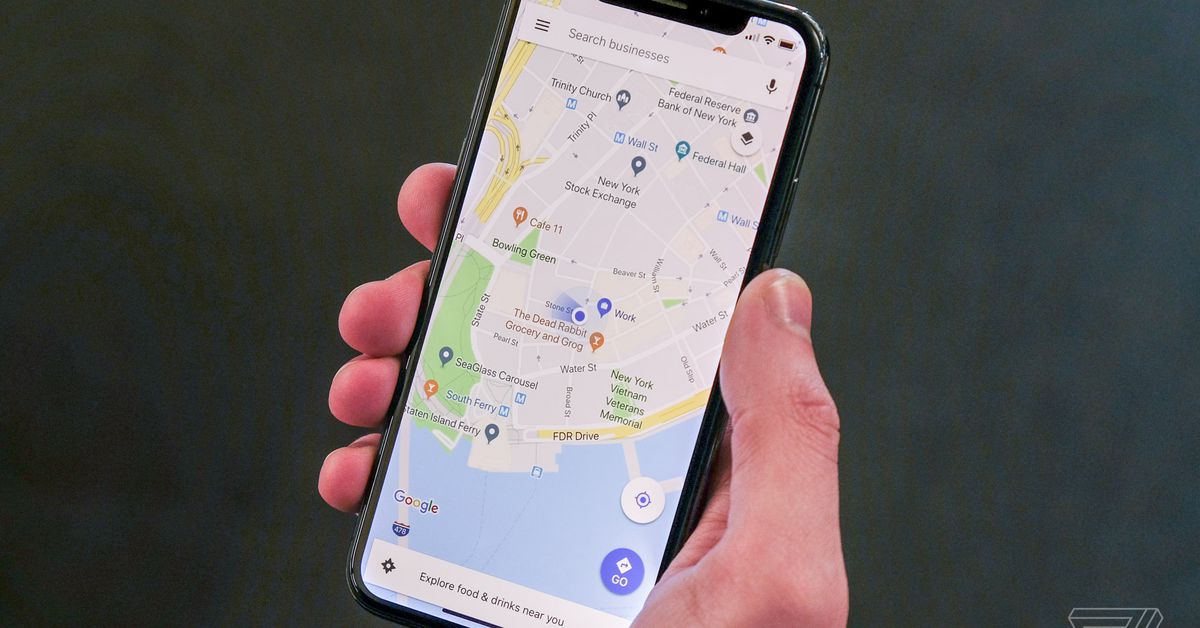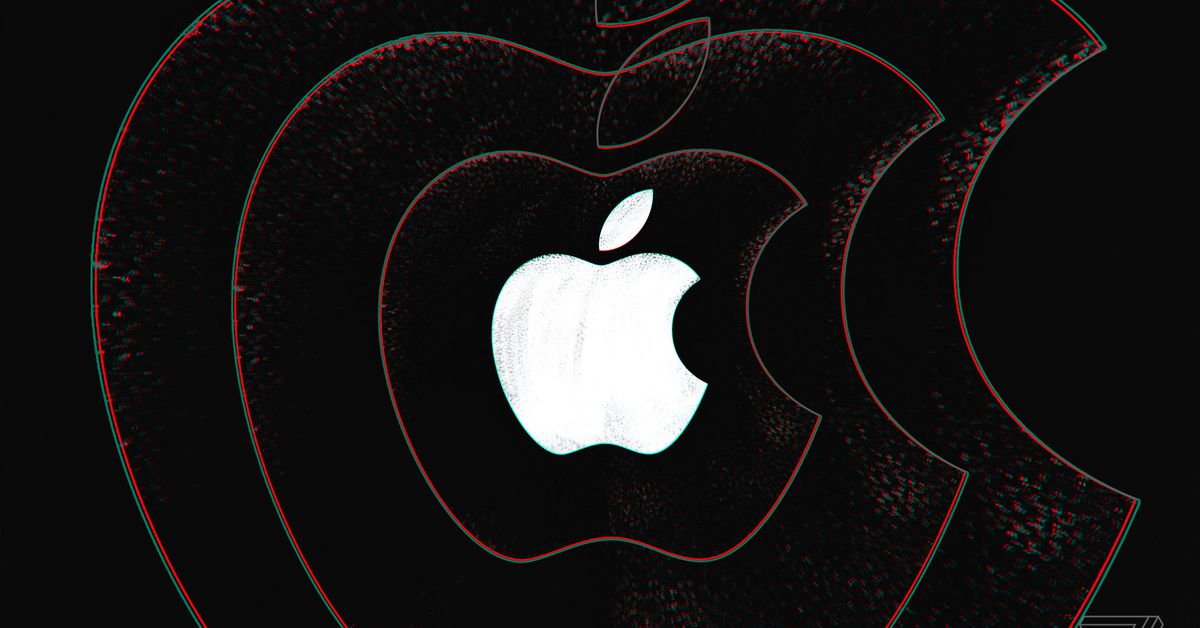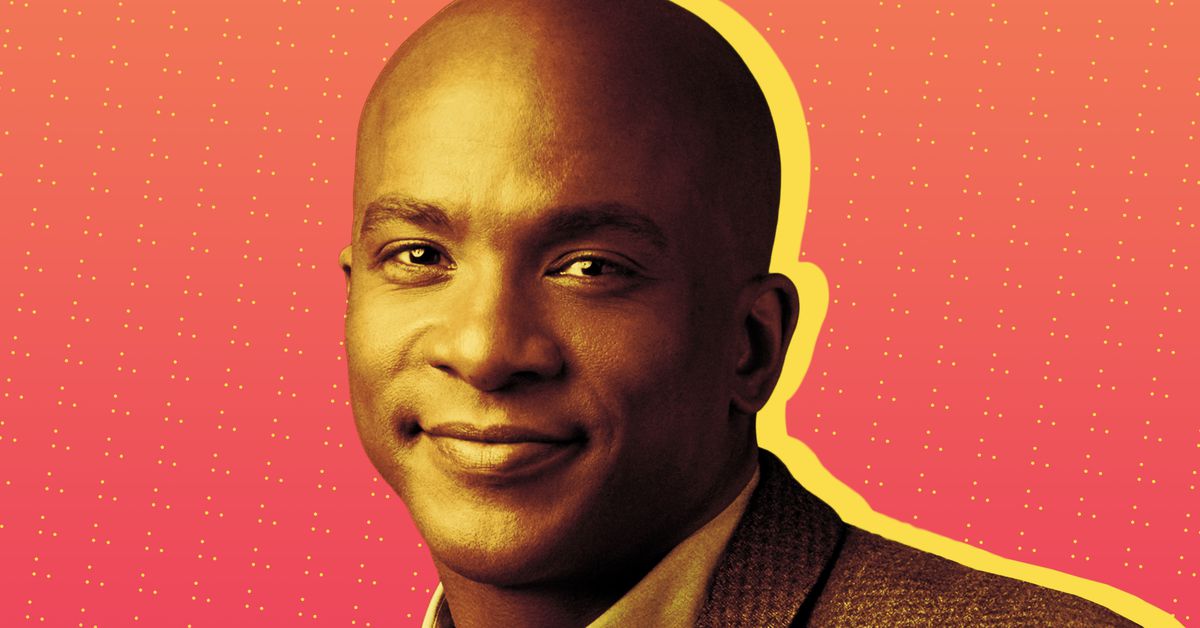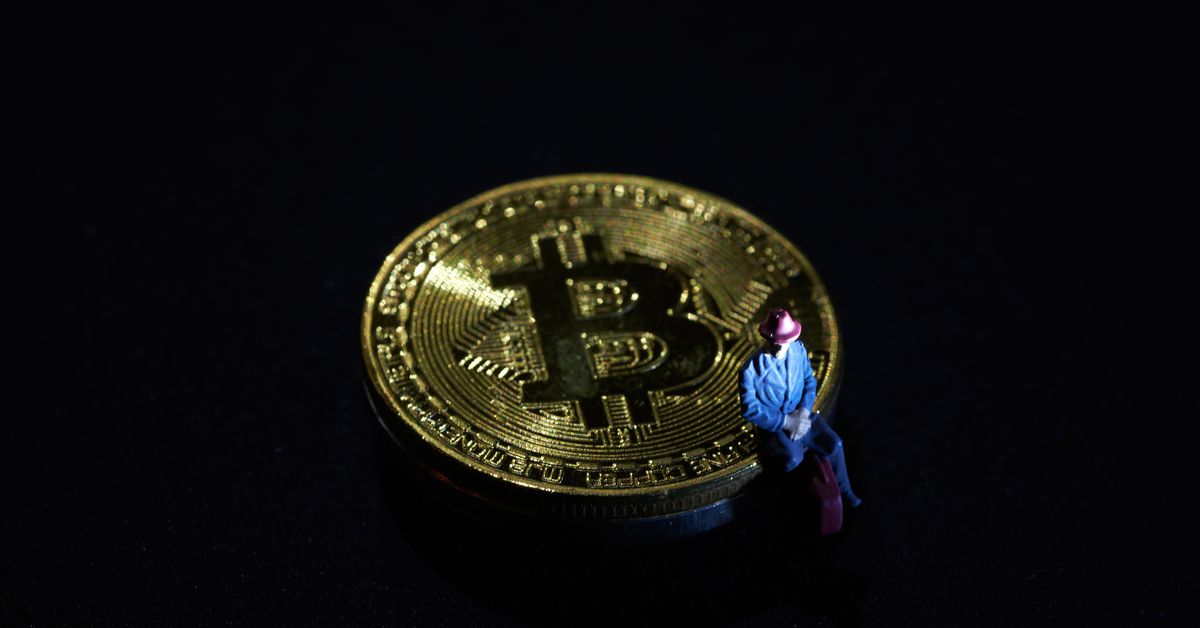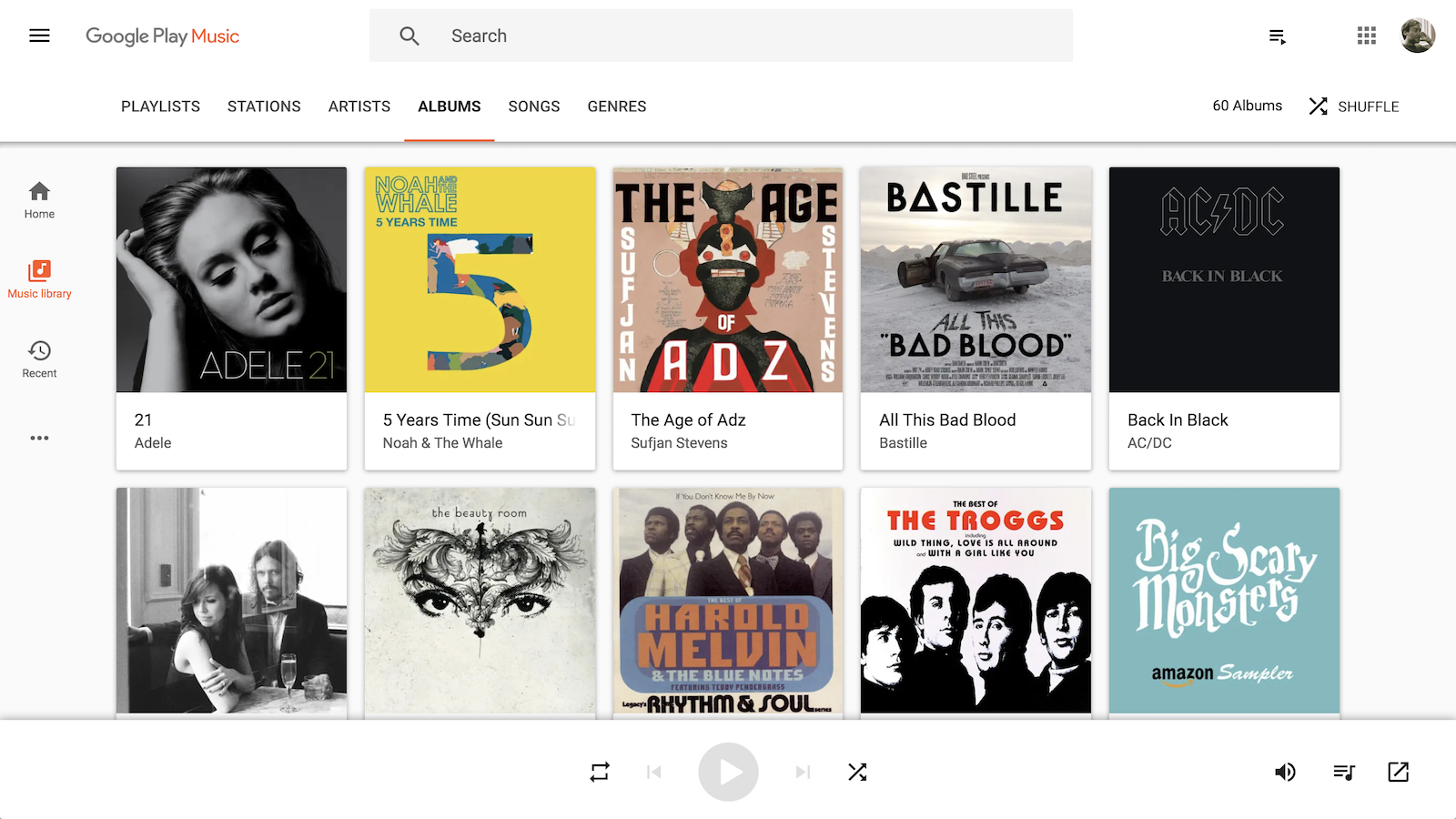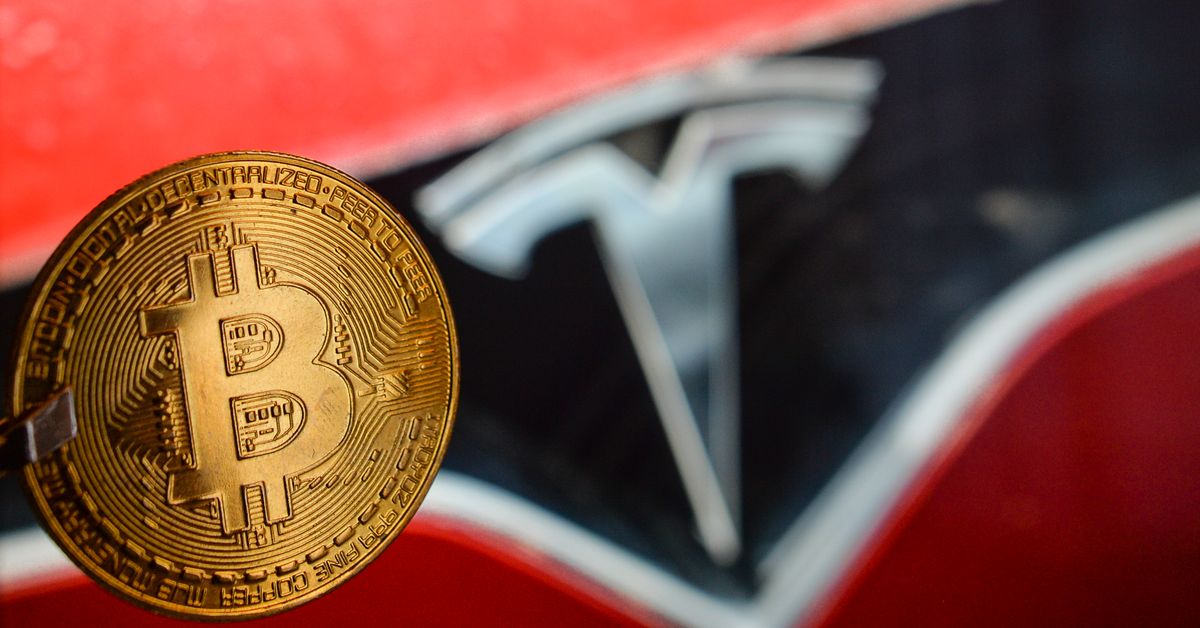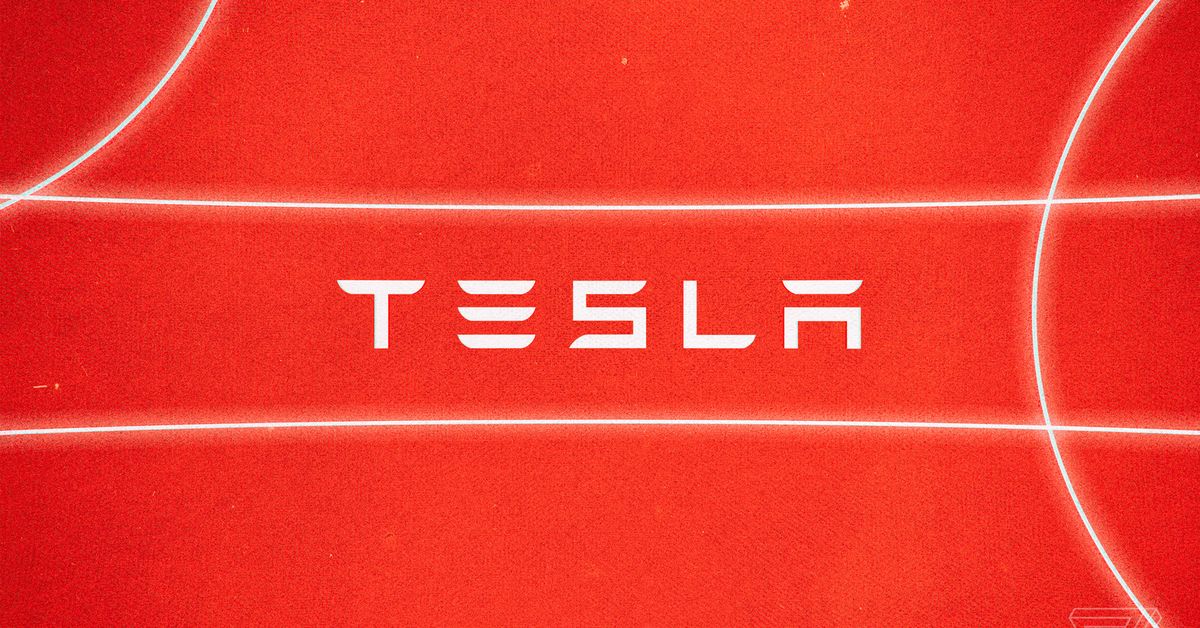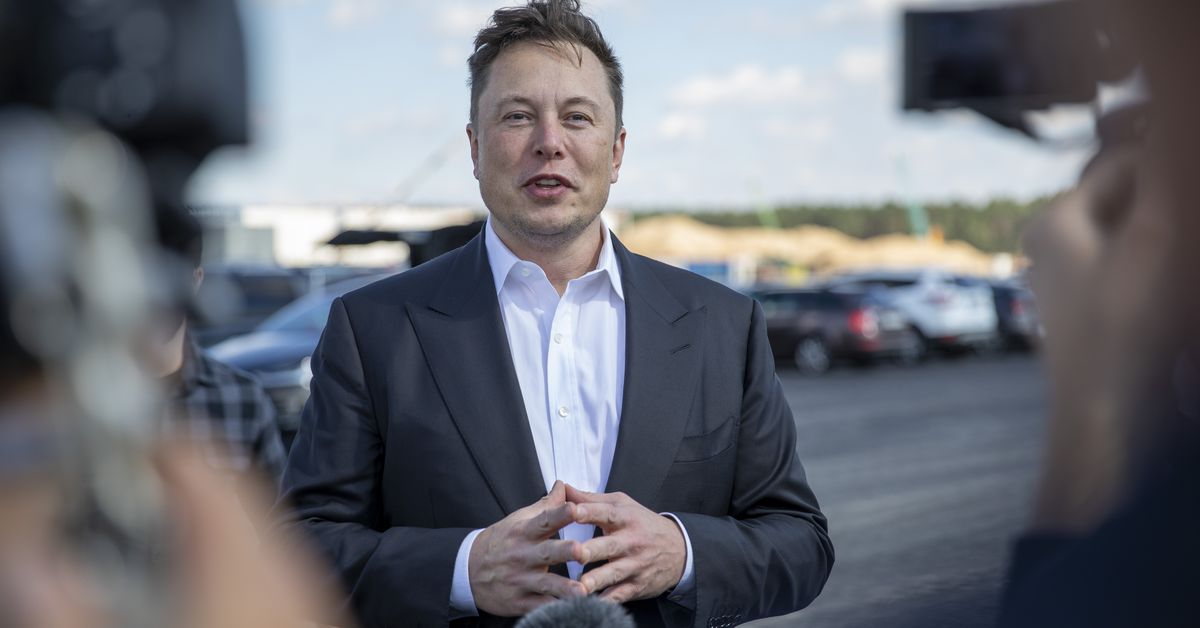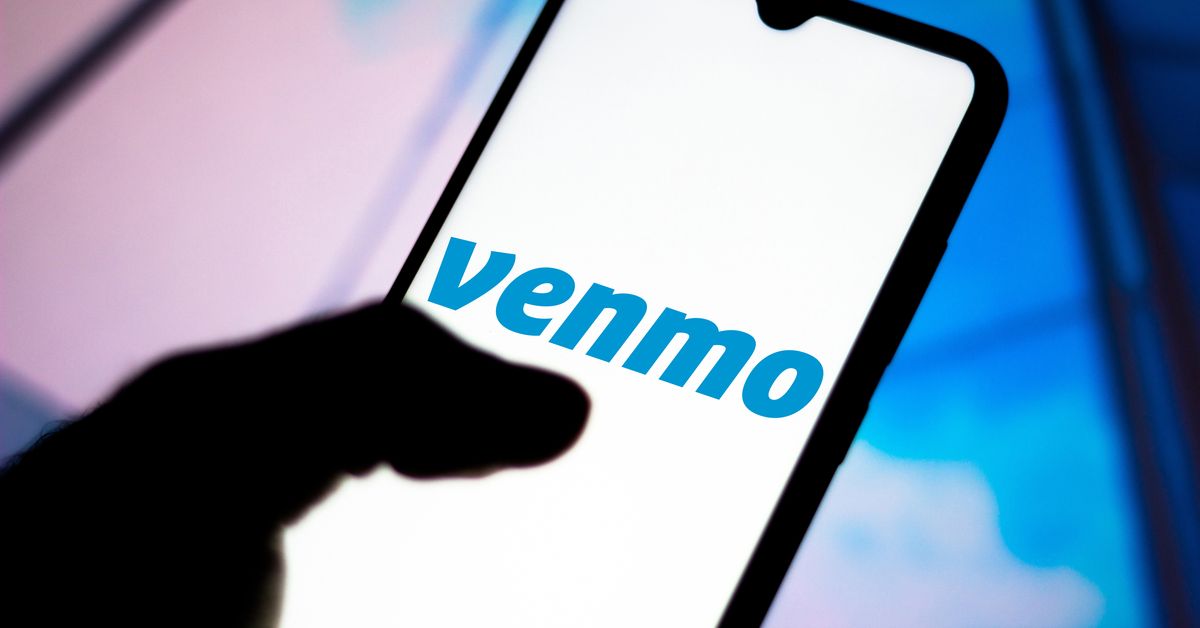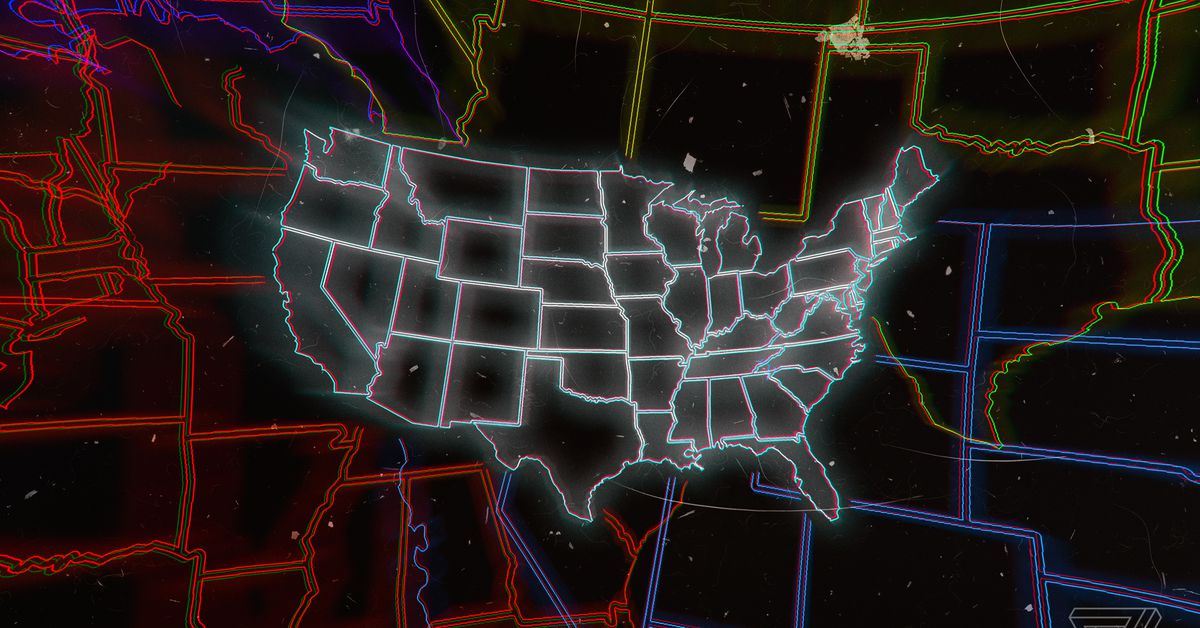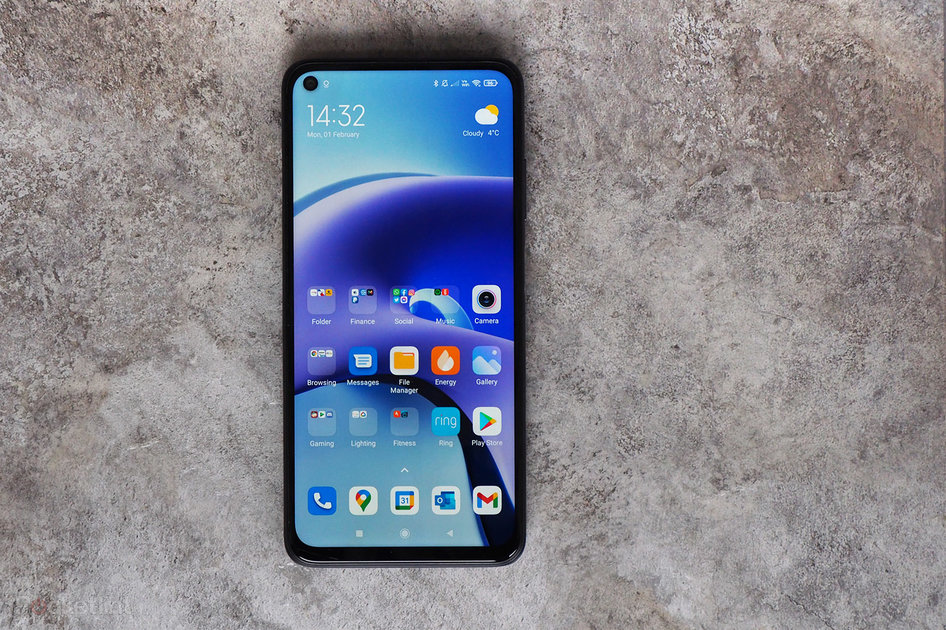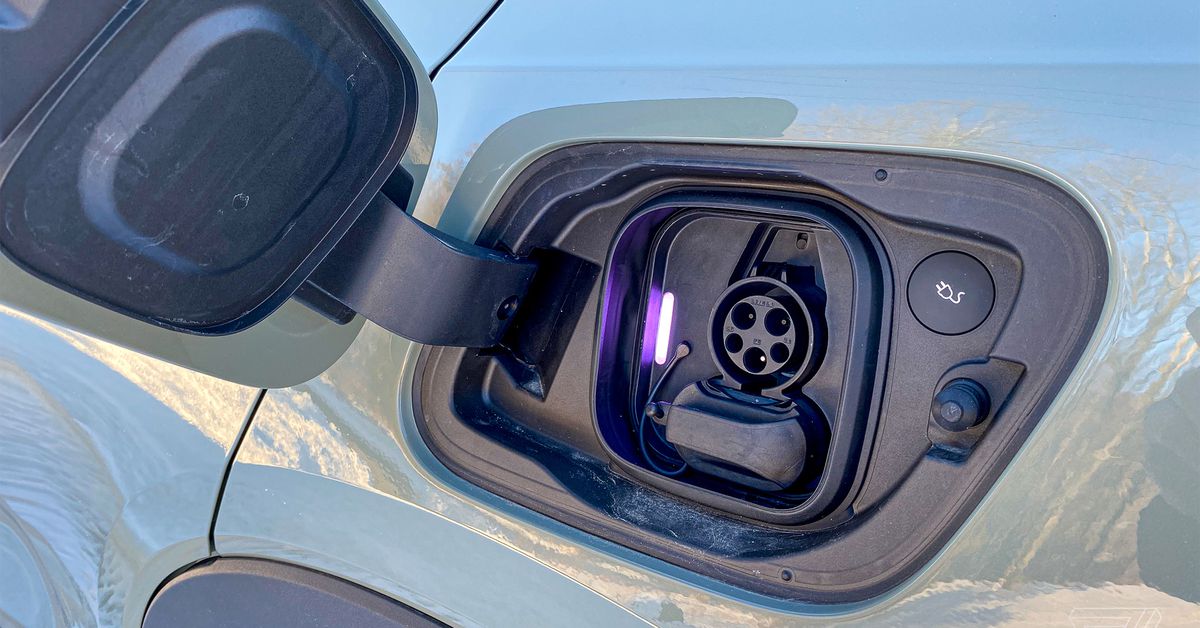On this week’s Decoder, I sat down with CNBC anchor Jon Fortt to talk about GameStop, how the media covered it, what happens next for the market, and what — if anything — we learned from it all. We also talked about his new online course, The Black Experience in America.
This transcript has been lightly edited for clarity.
Jon Fortt, [you’re] one of the anchors of Squawk Alley on CNBC. Welcome to Decoder.
Thanks for having me.
And I should say you’re also the proprietor of Fortt Knox, which you just told me is a digital brand. It encompasses many things.
Yeah, yeah, yeah. It was a podcast, but it’s no longer a podcast. It’s mostly on LinkedIn. You can also catch it on YouTube, but one-on-one interviews. And then I release clips too. So lots of fun.
And you’ve got Fortt Media, and you just used that to launch a course about the Black experience in America, which I definitely want to talk to you about, but I want to start with the news. It’s been two weeks since GameStop. It feels like both a minute and a lifetime.
It’s been insane.
I feel like I am still trying to figure out what I learned from a story about a subreddit trading at such volumes that a stock went up way higher than it should have and crashed back down. And everybody went along for the ride. What have we learned?
Well, it’s going to be years before we kind of sift through this debris and do the CSI and figure out what really happened here. So in a way, it’s still too early to see what we really learned. But I think part of what we learned is it’s not really that different this time, and this supposed revolution in access to trading and markets, it’s interesting, but we got to keep our eye on the ball here, which is that most people should not day trade, right? Most people, you get rich slowly in the markets, if you do it right, not overnight. And mom and dad at home probably shouldn’t be attempting short squeezes on hedge funds as a routine thing. Maybe every once in a while…
So a lot of people are going to hear that from you and instantly tweet at both of us and probably send me emails because I read my email address at the end of every show. They’re going to say, what we actually learned is the market’s rigged. It’s a casino anyway, the rich people always get richer, and retail investors having this kind of access and moving as a collective to run a short squeeze is actually a necessary and good corrective to how corrupt the market is.
Well, there’s something to be said for that. One of the kind of disturbing but semi-hilarious things to come out of this is so many people who were kind of new to the market, and very smart people, were accusing me of being on the side of hedge funds.
Yes.
I don’t know anybody at hedge funds. I don’t care about hedge funds, hedge funds don’t pay the bills. You know what pays the bills at CNBC? It’s retail investors, people at home watching it and being invested over the long term and people like me, my biggest incentive is to be right, and to be smart, and to have access to smart people because I’ve been right over time. Hedge funds are just not part of the equation for me. No contacts from hedge funds in my phone. I don’t call any hedge fund managers. There are people here who do, but that’s because they cover hedge funds.
So my interest primarily is in technology, but also the business around technology, the public companies that are so big that we talk about so much when you come on Squawk Alley, Nilay. Is the market complicated? Yes. Do people with a lot of money and power have outsize influence in the market? Yes. Does that mean that the little guy can’t win? It absolutely does not mean that.
One of the things that really grabbed me though from the very beginning was the incredible rush to build a narrative around what happened with GameStop — disconnected from the company GameStop itself, but from the notion that Melvin Capital Management would go under, that it would be bailed out, that the regulators were stepping in in some way, that another company would pressure Robinhood, the retail trading platform, to stop trading. It just quickly felt like a conspiracy theory to me. But in the way that felt good, right? I don’t know how else to describe it.
Conspiracy theories are supposed to feel good or else they’re a bad conspiracy theory.
We’ve had a couple of years of conspiracy theories driving the entire narrative of the United States. This one was, I kept on describing this as Fight Club fanfiction. We just keep writing the story about how the little guys are finally banding together to take down the big guys. Because of the year of conspiracy theories in America, all of my disinformation, misinformation alarm bells kept ringing. I don’t know if this is true. I don’t know if the guy on Reddit who says that he’s being driven by his anger at the 2008 financial crisis is real. We don’t know who these people are, but we’re just believing a lot of what they’re saying. And we’re piecing that together into a narrative.
I run a website though, and I get to sit back and maybe wait a day and tell the reporters, go find out what you can find out.
Well, that’s the journalism part, right?
Right. But you’re in the chair live.
Yes.
So I ask everybody who comes on the show, what is your decision-making framework? When you’re in the chair live and the graph is going vertical, how do you take a beat? How do you decide what to tell people?
Well, there’s a couple of things that come to mind. Number one is the filter, right? Unlike when I was primarily a print reporter, which I was for the first half of my career. There, your filter can be slow, right? Your first draft is in your head. You jot things down, you can ask questions in sort of a roundabout meandering way. When you’re on live TV, you can’t do that. It’s got to be crisp coming out. And you’ve got to filter stuff in real time. And part of what I use to do that is history. So I started in the journalism business, I guess in a way you could say in 1994, that’s when I had my first internship. I was 17 years old. I was working for the Knight Ridder Washington bureau on Capitol Hill, covering Lloyd Bentsen and Robert Reich giving testimony, trying to hear anything I could about interest rates, jot down notes, run to a payphone and call it in.
But some of the early experiences, I moved to Silicon Valley in December 1999, right before the dot-com bust. So I got to see people going all in believing in this, it’s different this time, stocks running up an enormous amount. And I saw a lot of people lose their shirts, and saw the flip side of that and heard about how the market works. A few years later, about five years later, I was a real estate and personal finance editor during the housing boom, and didn’t really see the bust coming. I was a little too young and inexperienced, but then when the bust hit, I looked back and thought, wow, where were all of our stories about that? As the editor at the time, what do I wish I had said, what rocks do I wish I had turned over?
And so when I see another moment of excitement like the one that we’re in, when I’m live, the history becomes part of my filter, because I’ve been through a couple cycles where it was different this time. I’ve been through a couple cycles where people said this can’t possibly blow up. And I have a little bit of that benefit of saying, well, if anything like this happens again, here’s what my filter is going to be and here’s what I’m going to say, because I wish I had said it back then.
So you had a front row seat to the entire GameStop news cycle. You had some notably tense exchanges on the air.
You enjoy that?
So you have the Winklevoss twins on the air with you [and] you have this remarkable back and forth and there’s just a moment where Tyler says something to you like, you’re the journalist, these are the questions you should be asking. This to me is indicative of the entire relationship between the media and the market in society right now, because we’re inherently slow. But markets, stocks move really, really fast, on sometimes bad information. I mean, that’s just to me, it’s a sign of bad faith to ask a question or to insinuate something, and for me, the journalist, or you, or whoever to say, I don’t know if that’s true, and then have it demanded that you ask the question.
Right.
And I’m just wondering how you took that moment. Because I’ve watched it several times now and it’s like the entire GameStop story in one little nutshell, in that interaction. “You should be asking the questions I’m asking,” and we’re saying, we are, we just don’t know the answers.
Well, I mean, you say that journalism is slow. It can be. Sometimes it’s pretty fast. And I think on this story, on that particular issue, it actually turned out to be pretty fast. I’ll allow that journalism is a weird business and you can’t expect people outside it to understand it, but there’s more people that work at CNBC than Jon Fortt. And it just so happens that as we were talking, Andrew Ross Sorkin was in the process of booking an interview with the Robinhood CEO on CNBC, which happened that very same day. And we got some of those answers that the Winklevoss twins were really wanting to hear.
So I hope they watched Sorkin’s interview. Also, our reporter who covers hedge funds was also reaching out to Robinhood and got a statement from them about what happened. Now, people could choose to believe or not believe that statement. But to say that Jon Fortt is not doing his job because he’s talking to the Winklevoss twins, supposes that Jon Fortt is the only employee at CNBC. And therefore I ought to be calling everyone at that very moment. And fortunately, that’s not how the operation works. We’ve got lots of people, lots of them smarter than me, so that we can get multiple things done at once and still be on live TV.
Do you think about, in the moment, we’re booking the Winklevoss twins because they’re making a lot of noise about the rise of retail investors and the destruction of the financial markets. Do you think in that moment, I don’t know if this is the right part of the story to tell?
Not really. I mean, I’m fine with guests, especially guests like Tyler and Cameron who have plenty of credibility and plenty of experience, expressing their opinions. Right?
Yeah.
Yeah. People got opinions, they’re prominent, they have opinions. People want to hear what their opinions are. What I’m not okay with is misinformation. Right? Because part of my job as a journalist is to not only have that filter on myself, but to provide that filter for the viewer. So if somebody comes on air and says, political leaders are preventing you from trading, my filter says, well, is that true? Because I don’t know that to be true. Do you know that to be true? What’s your evidence? And if it turns out that that was just a bit of hyperbole or an opinion, he could have said that, we could have moved on. I didn’t have a problem with him saying it’s the end of centralized finance. That’s an opinion, it’s not a statement of fact. But in a month where we had had a mob stage an insurrection at the US Capitol based on what they thought political leaders were doing, I’m not going to have somebody on my show accusing political leaders of something that there’s just no evidence for without a challenge. So that’s my job. That’s what I did.
I’m sure at CNBC you’ve got an ethics policy, the way The Verge has an ethics policy. The justification for our ethics policy: I can’t own any Apple stock because we cover Apple often. I know things that might move the stock, or just because of the size of our platform, I could publish a lie and tank the stock and then receive some financial benefits. So, just get rid of it. I don’t own any of the stock, we’re prevented from owning a lot of things.
Yeah.
Do you actively think about how much the minute-to-minute content of CNBC moves the markets in real time, as you are producing the news?
I try to act as if the real-time content on CNBC might move the markets, but I don’t flatter myself enough to think that it really does. I mean honestly, the stuff that you guys publish on The Verge probably has more market influence in many cases than a lot of the stuff that we do on CNBC. But I think it’s incumbent on us to hold it as a sacred trust, the fact that investors, companies, people in the markets are depending on us for accurate, real-time information. So I don’t know to what degree what airs on CNBC moves the markets, outside of it being breaking news that’s material to a company — yes, that clearly moves. I don’t know. But I try to act as though it does.
So the reason I ask is, you said you have a heightened sense for misinformation. You just have a lower tolerance for it. I feel like, again, after the past year or so, all of us feel that way, but there are stories of an activist investor showing up, driving a news cycle to pull a stock down, taking a position in a company, and then firing everybody and turning it.
This is a cycle that happens all of the time. The financial press is usually involved in this cycle, right? We’re going to buy the failing restaurant chain. I think Olive Garden is the example, right? We’re going to buy Olive Garden, we’re going to take a position at Olive Garden. We’re going to say they don’t salt the pasta. This is a real thing that happened.
We’re going to drive a news cycle of how Olive Garden is horrible, crash the stock, take a position; now we own Olive Garden. How do you reconcile those two things? Right? We don’t move the stock market, but there is an entire sanctioned information ecosystem that’s there to manipulate prices, such that people can get rich on the end.
I think we got to be careful, and what I try to do is be careful not to forget what our place is, as observers of and interpreters of the story, not as lead actors in the story ourselves. Sometimes we end up getting cast in a moment, but that should be the exception.
And so what I try to do, and what I know my colleagues try to do, is be as aware as possible of the motives of various people who are promoting certain narratives and storylines. So that we can try and make the audience aware: Well, here’s where this person is coming from. Here’s what they’re invested in. Here’s some of the actions that they’ve taken in the past. Here’s how activist investing works. We try to educate about history and the tendencies of the market, as well as informing about what’s happening right now.
And I think that’s important because otherwise, you can get taken in. If you’re just reading a press release or believing what an investor is telling you or what a company is telling you without understanding how the underlying business works, the mechanics of the market, etc., then that’s dangerous territory.
So I think another thing that is important for me to remember, for us to remember, and as much as possible for the viewing public to understand, is that, yes, our job is to report the facts. Our job is also to bring historical understanding into the picture, and our job to some degree — I know it sounds paternalistic — but it’s to try to protect at least the interests of the retail investor, by saying, you know what, things go up quickly; they can come down. Here are some of how the mechanics of a short squeeze can work. This might be set up as the little guy versus the hedge funds. I guarantee you, all of the hedge funds are not short. Hedge funds love to eat their own. There are some people who are eager to be a part of this short squeeze and drive this up.
And then those same people will reverse at the appropriate time and help drive it right back down, and make money both ways. Because, is that corrupt? That’s how the market works. And if you’re going to play in the market, understand as much as possible how it works.
So we’ve been talking around retail investing, because I just feel like the dynamics of the GameStop story had as much to do with the media as the market. So we’ve talked a lot about the media side of it. Let’s talk about the actual market. So Robinhood is an app, there are lots of apps like it. They’re a startup. Whenever there’s a news cycle about a startup, it’s always a good bet that they’re just flailing. There’s just — a startup being a startup.
That feels like a lot of what happened here. You’ve watched the tech industry grow up, basically. This is new, right? This amount of interest in financial technology, this amount of interest in democratizing finance?
No.
No?
Not really. I mean, I remember E-Trade, if you want to talk about a revolution. That was, well, I can just log into a website and click some stuff around and connect my bank account and buy this stuff myself. I don’t have to get on the phone with a broker, and I can control this, and I can type in the numbers.
That was a whole different scale of revolution than this is, in part because it was also a revolution for the long term. It allowed people to dollar-cost average in and control it themselves, to shift their plan quarterly without having to schedule a meeting with their financial adviser, etc., and do their own research. Read reports online, not have to wait for things to come in the mail, read SEC documents off the website.
That was amazing. I want to put down what this is because I think there’s a potential for — on social media, online — people to research better and more quickly, for people to develop systems of credibility, where individuals can become highly rated analysts, because of their charted reputation.
There’s the potential to encourage behaviors in communities that haven’t had it, around saving, around investing, but I don’t think that’s happening on Reddit yet. I hope it does. I think the spark of what’s happened here could lead to long-term healthy behaviors, but I think it’s an open question whether that’s actually going to happen.
Well, it’s two technology platforms here, right? There is Reddit, which is a community of people, multiple communities of people, right? There’s WallStreetBets, and then there’s also r/personalfinance and there’s r/longterminvesting. Reddit, it’s not a monolith. We’re specifically talking about WallStreetBets. Here’s this subreddit that drove the entire news cycle.
That’s just a community. The tool that most of them were using is Robinhood. And the specific difference between Robinhood and E-Trade, Robinhood makes trading free, and there’s a business model dynamic underneath that, that we should probably talk about.
Yeah, we should talk about that.
And it’s a phone app that makes it seem like a game.
Right.
And those two dynamics seem like the most important part of the story to me.
Yeah. And I’m not sure yet that those are good things.
Ok. Explain the business model to everybody.
Well, the business model is that you get to trade for free because the powers that be on Wall Street get to see what you’re doing before it gets done. They get to cheat off of your test in essence. And when you can do that at scale, you get an idea of what’s trending before it happens. And this era, data is everything we talk about; the data that Facebook has to be able to target advertising.
Well, because of free apps like Robinhood, potentially, Wall Street has data to target trades. So for most people, individuals, if you’re trading for the long term, buying some stock here or there, you want to hold for a while, maybe you don’t care who’s looking over your shoulder and getting to see, “Oh, well, I was buying 20 shares of Apple.” Which of course you weren’t, because of the ethics policy and whatnot, you’re a journalist.
But hypothetically, Apple, maybe you don’t care. But if you’re trying to put a short squeeze on the powers that be in Wall Street, you don’t want them looking over your shoulder knowing what you’re doing, right? Because then that’s mano a mano, right? So that’s the one part of it, the business model. It’s free, but it’s not free. Kind of like Facebook is free, but it’s not free.
So that, what you’re describing, is called payment for order flow, which is very controversial.
Theoretically, the big banks and trading houses aren’t allowed to front-run trades in this way, right. It’s supposed to be illegal, but there’s obviously value in it, because they’re buying it and Robinhood exists as a business.
Data is valuable.
Is that just the thing that we should make illegal? Should we just make free trading based on payment for order flow illegal? Is that the thing to regulate?
Well, I mean, you could make payment for order flow illegal. I guess that would be fine. There are probably other ways to make trading free if you’re really determined to do it. I mean, there are people now who want to try tipping, as a way to, I don’t know how that’s going to work. Yeah, I had a great experience with that trade, here’s 10 bucks for the broker.
There’s probably some advertising that could be done in this case. But I mean, I think part of what is at the root of this is, if you’re getting a good service, you should probably pay for it. Or at least, the costs should be revealed to you, so that you have the opportunity to pay.
Because I think for a lot of people, even in this Robinhood situation, where they restricted certain types of trades over time, there were people who were very upset: “How can you restrict me, Robinhood, I ought to be able to trade?” You’re not paying for these trades, right? So what level of service exactly do you expect? When they’re trying to serve everybody in a free system and they get overwhelmed, stuff is going to break, right?
Either because it just can’t handle the volume, or because they have to break it to keep from overwhelming their system. In a way it’s similar to what we saw happen with Parler, but that’s a whole different—
Very different. Although the relationship to the online community, there’s something there that’s worth teasing out.
There’s something there, yeah.
So that is the business model that enables free trades, which makes more people likely to trade. I think if the E-Trade desktop website, which I don’t know if you’ve looked at it in a while, it’s still pretty ugly, right? All of their design attention is on their mobile app.
But if the E-Trade desktop website or any other old-school bank desktop website enabled free trades based on payment for order flow, you might still not see these kinds of runs. You wouldn’t get the democratized finance experience that we’re seeing. It’s also because it’s a phone app that is extraordinarily friendly, it makes it seem like a game.
I’m not sure that’s democratized. I think you’re right in, yeah, it makes it seem like a game, it’s gamified. But I mean, is it democratized? There are some things that shouldn’t necessarily be too fun. If you’re seeing what stocks are trending and that encourages you to trade them often, and [with] payment for order flow, you want a flow of orders. You want people buying and selling often.
History shows that when you trade more often, you lose. If you make a smart buy and you hold it over time, that tends to be better. So do we want a system? I’m not saying it shouldn’t be allowed, yes, people should be allowed to do what they want, but do we want a system where the mass market of retail investors are encouraged to trade frequently, when we know that they’re more likely to lose? I don’t know. Maybe that’s a consumer protection issue. People are saying, “Let me trade, let me trade often.” Yeah, but if we know that if you trade with high frequency, you tend to lose — and we talk about putting the retail investor in a bad position, by getting them hooked on something.
Investing is not Candy Crush, right? It doesn’t work that way. And if there’s a system set up that makes it feel like that, that might just be bad for retail investors.
So there were a lot of calls to regulate various parts of the market in the wake of GameStop. At the very beginning of our conversation, you said, we still don’t know what we learned. I would say that we don’t know what part of this system we should regulate. So here’s just a… I made a quick list. Elon Musk thinks shorting stocks should be illegal.
I definitely disagree with that.
We should talk about it. I don’t really know how you would do it.
The process by which Robinhood prevented people from buying stock will be investigated by Congress. I’m sure some regulation will come out of that. When does the terms-of-service agreement for Robinhood supersede whatever expectations, I don’t know. Some regulation will be proposed there, right?
They should look into that, for sure.
AOC and Ted Cruz bizarrely agree that something about hedge funds should be investigated. I still don’t know. Elizabeth Warren seems to think that the market in general needs a new set of regulations, such that it reflects the value for companies and their workers, not over-financialized hedge fund guys. I don’t know.
I mean, that sounds good, but I’m not sure what that means.
I think she had the most holistic view. I thought her letter made the most sense.
She’s done very good work.
It’s just that at every part of the stack, it’s, we shouldn’t let you short stock, all the way to, the market should reflect the value of labor in the companies, and we shouldn’t treat it like a casino. All of those sound good. Which ones do you think are the most viable, and which ones do you think, as you’ve watched the market grow and more people participate, are the most reasonable?
Well, I think first of all, there need to be limits on short selling, right? The degree to which GameStop was shorted, and AMC, which was so crazy, that it was begging for this to happen, right? You should not have more than 100 percent. There’s all sorts of reasons why it’s not really more than 100 percent, but you should not have more than 100 percent of the float of a stock sold short.
But at the same time, I don’t think that short-selling, betting against a stock, should be illegal. And I just look back to Enron, right? Who were some of the people who called out the Enron scam? They were short sellers, in part, why? Because there was a financial incentive for them to do so. And I think that’s great. Just like there ought to be a financial incentive for people to make their argument about why Tesla is the future, and it’s so awesome, and it has the potential to be worth the $800 billion-plus that its market cap reflects. There should be people who are able to say, you know what? These Enron financial statements, they don’t make sense, this thing is a scam, it needs to be called out.
And look at the housing crisis. It’s horrible what happened at the end of the housing crisis, people losing their homes, etc. But there were people who were short mortgage-backed securities who were absolutely telling the truth about what was happening in the market, because they were incentivized to do so. That’s not a bad thing.
So if somebody is negative, but they’re right, we don’t want to outlaw negativity. We just need to learn to sort through facts and figure out what the right thing is.
Elon Musk thinks shorting stocks should be illegal. But part of the reason he thinks that is because there is a lot of short interest in Tesla against a lot of extremely vocally supportive retail interest in Tesla. That seems like the right dynamic, right?
Well…
You got a bunch of big players who were like, “I don’t think he’s ever going to make enough cars. I can bet against it.” And you’ve got a bunch of people who believe in him very specifically, who can’t afford a Tesla, who can open up Robinhood and buy some Tesla stock. And it goes up and they’re happy, and he’s capitalized enough to build more cars. How would you even stop that? Isn’t that exactly how we want that system to work?
I don’t know if it’s exactly in every case how we want it to work. I mean, with Tesla at the heights where it is right now, it’s easy to forget that a couple of years ago, Elon Musk was like, Britney Spears circa what, 2003, the man was kind of a mess. Right. We were worried about Elon Musk. I remember that New York-
Nilay Patel (00:35:50):
You just watched that documentary, didn’t you?
Jon Fortt (00:35:51):
I’ve seen the tweets about it. I haven’t watched it, but yeah. That’s it. You know how this works.
Nilay Patel (00:35:57):
Yeah.
Jon Fortt (00:35:57):
But yeah. I mean really, Elon Musk was like “the worst year of my life. It was hell and blah, blah, blah.” Now he’s riding high.
But in part, that’s because of the pressure that he was under, which is in part because of the shorts. Now, what if we had lost Tesla and all of that innovation, because some people just wanted to make money betting against it? That’s why I’m saying, there need to be some limits. We want the game to be fair, right?
It’s like when we’re watching the NBA or watching the Super Bowl and the refs are making a bad call — it’s not that we don’t want any refs, we just want consistency and we want fairness so that the best are able to win. And I think that’s really what this is about. I get uncomfortable with talks about regulation being the solution to everything. We don’t want too much regulation because then that holds back innovation. But you need enough consistent, clear rules that the right type of innovation and the right type of behavior gets incentivized. Whether you’re talking about companies and leaders, or you’re talking about people who are trading, you don’t want to give people incentives to do unhealthy things.
There is a lot of very pent-up anger out there, right? There is an entire generation that came out of college into the financial crisis of 2008. President Obama just put out his memoir. There’s a lot of regret over the size of that stimulus. Maybe we didn’t get the economy going enough. You see Joe Biden right now with his coronavirus stimulus package. He’s saying, “I’m not making this mistake again.” There’s just a lot of sense that the wrong people were helped out of the financial crisis; the banks. Not enough regular people were helped, and regardless, it wasn’t enough, and that has wrecked the economy forever. Where does that anger go? If it’s not pointed at Wall Street in the form of WallStreetBets and Robinhood, how do you make it something constructive? Is it even possible?
I think it is possible, but I think it’s partly on us as journalists to arm the people with information. And I think it’s partly on the fabric of our civil society and democracy because what’s supposed to be great about democracies, and what is great about healthy democracies, is that anger gets funneled into informed action and the ballot box. And things get changed in a smart way because people get upset. I mean, women’s suffrage, the civil rights movement, on and on and on. We’ve seen this; that’s what happens when righteous anger meets with good information and good leadership, ethical leadership, and righteous action. We’ve got to, I think, reinvigorate good information and reinvigorate democracy out of all of this to get things changed in the right way.
Do you think the markets have been over-financialized? To me, one of the classic examples, and this isn’t in the US market, but you and I talk about tech companies all the time. Sony has a bigger insurance business than it does a TV business, or even a film business, right? Its main business is financial services. GM is another great example, where its loans unit was big enough to once be spun out. That’s where Ally, the bank, came from. And that was just GM’s financial services division. Like they weren’t a car company, they were a bank that made cars. And then eventually we split them off and turned them into an actual bank. There’s just a lot of financialized games that happened in the economy, that most people don’t see or don’t understand, that have tectonic impacts on our lives. Is that the place to point the righteous anger and the regulatory indignation, or no?
I’m not sure that’s the right place. I mean, we’re talking about righteous anger at a time when anybody over the past decade could have made the boring, smart bet and bought the S&P 500 and they’d be doing very nicely right now, if they had the disposable income to do that. And that’s a big if, because a lot of people have been out of work; income inequality, which I think is a messed-up term. I think the distance, the space, between the poor and the rich has opened up to a crazy degree.
And so people at the lower end of the socioeconomic strata have had a whole lot of difficulty being able to afford to invest for the long term. So the market going up doesn’t mean much to them. So yes, that’s an issue. But I think the core issue again becomes what’s the fair, correctly incentivized way to make sure that every person has an opportunity to get educated, to become a productive part of the economy and then to live comfortably, right? If you’re working hard, if you have access to education, you’re doing all the right things. Maybe everybody’s not going to be Jeff Bezos, but I think people just want a shot at not having to sweat it at the end of every month. And I don’t think that’s too much to ask.
Can a market where you have a retail investor and a BlackRock doing the same thing, just trading, can that market ever be fair?
Sure. First of all, why is the retail investor trading? If you’re the retail investor, hopefully you’re reading The Verge, you’re reading the reviews of the first M1 Apple laptops out. And you’re thinking, “Okay, well, based on the fact that Apple’s big enough now to vertically integrate in its hardware and get more margin out of every device, and based on the battery life that I’m hearing is coming out of this thing, do I think the stock is worth buying?” And then you’re watching CNBC and you’re seeing the earnings and you’re making a decision on whether you should own Apple for the long term.
Hopefully you’re not sitting there thinking, “Oh, well, GameStop is at $250 now. And we’re in the midst of a short squeeze. Should I buy it here?” If you want to gamble and have fun, maybe you can’t go to Vegas. You can play side bets on GameStop for this week and that’ll be entertaining for you, but don’t do that with your rent money or your retirement savings. Invest for the long term, then do you have to worry about BlackRock? Probably not much, especially since a significant portion of your retirement investing and even your long-term savings should just be in an index fund and BlackRock isn’t going to mess with your index fund money, right? Did I get wonky there? Maybe a little, but you get my point, right?
I do. You said income inequality is a messed-up term. Why do you think that’s a messed-up term?
Because we want income inequality, like how messed up is income equality? Like, I don’t want my coworker who’s working half as hard as me making the same money. Forget that. I don’t want income equality. I want income that matches my effort and I want opportunity that’s equal for everybody. I think that’s what we should want. So let’s talk about opportunity equality based on neighborhoods where people live, access to quality education, access to a basic level of food and health care that makes sure that kids can show up ready to learn, all of that. What are the things that we need to get this economy working for everyone? Because selfishly, if we’re being selfish, even as individuals, we should want every single person in the American economy trained up to the max of their potential. Because that’s going to lift everybody.
So let’s go for opportunity equality and fair rules. And then yeah, let the income be unequal, not to a degree where the poor are getting crumbs and the rich are Bezos and Musk, necessarily. There’s some issues there, but yeah, we want people to be successful. I’m not like AOC. I don’t want to outlaw billionaires. I don’t think billionaires are a sign that there’s something wrong. Hey, Apple should be worth a whole lot of money for inventing the iPhone and the people who bet on it early, both by investing in it and working there and helping to invent that stuff. I’m happy that they’re rich.
Yeah. I think about this a lot. That the place where the opportunity inequality turns into the income inequality is the problem. And I don’t think that we’ve, even when the opportunities are equal and the work is equal, we still see income inequality. And I think that gets flattened a little bit in this conversation about who makes all the money, who doesn’t make enough. But I often see the mistake of, we shouldn’t pay out against the risk— and you and I cover tech companies. Most startups just fail, that money just disappears. And you’ve just accepted the risk of that money likely just disappearing.
History books are going to spend so much time on Elon Musk and what he has done, not just with Tesla, but also with SpaceX, the guy is a phenomenon. Yes, he’ll also tweet about Dogecoin. I don’t know how the history books are going to handle that. But a guy like that, in a fair system, he gets rewarded. That’s what you want to happen. Yes, I’m an unabashed capitalist. I’m not a libertarian. I think there need to be guard rails on the road. Not saying anything about libertarians, make your argument. I just don’t happen to be one. I don’t think that the free market automatically is moral and just, because this is a country where we had a market for people not too long ago. And under the free market, that’s perfectly fine. It’s not perfectly fine. So I’m all for the necessary regulation to express the morals of the republic. And there ought to be some, but I’m also an unabashed capitalist.
Let’s talk about Fortt Media. I want to talk about the project you just put out through your company, which is very directly called “The Black Experience in America,” the course. And usually when I talk to other journalists, I don’t talk about their company and their entrepreneurship, but this is a product that you’re putting out, that you’re selling to people to help them learn what it’s like to be Black in America. Tell me where that came from and what kind of business you’re hoping to build around it.
Yeah. I mean, first of all, I didn’t come up with this as a commercial idea. This wasn’t like, I want to start a company. What should it be about — how about Black stuff? That’s not where it came from.
I hope it didn’t come off that way.
No, but I’m sure people might think, “He’s got a company about Black stuff. How did that happen? How did he cook that up?” Well, what had happened was, in all seriousness, when George Floyd was killed, I was thinking about, what am I going to communicate about this to our two sons? My wife and I have two sons right now, they are 12 and 10. And part of this was, there was a big outpouring of emotion and activism around this, people were marching. I’m a journalist, so I don’t march. I don’t go anywhere and carry any signs. It’s not my role. So this led to a little bit of confusion in the household. It’s like, “Are we allowed to go out and march, dad?” Yes, you guys can march. I’m just not coming. “Can we put a sign in the yard?” No, you can’t put a sign in the yard.
That’s my house.
Yeah, there was a lot of what I wasn’t going to communicate, but I really wanted to focus on, well, this is an important issue. What am I going to communicate? And it went beyond, it needed to go beyond “the talk” that we talk about Black parents having with their kids. I’ve had a bit of that with our kids about authority and bias and society. I want it to go a lot deeper. And so, as I thought about all of the things that I wanted to communicate to our sons, I thought, “Well, this isn’t a talk. This is the course.”
So let me think about structurally, what it should be. And so much of Black history, the way it’s taught, focuses in on slavery and the civil rights movement. And it’s like there’s a minor lead-up and then slavery, and it’s terrible, it’s terrible, it’s terrible. Middle passage, oppression, cotton, etc. And then emancipation, maybe a little on Reconstruction, eh, it didn’t really work out. But then the civil rights movement, and now everything’s supposed to be better. And is it? I don’t know, but now it’s the present. That’s a lot of how Black history is usually taught. And I thought, “Well, no, that’s not a good framing. It’s kind of too focused on victimization on the one end and hero worship on the other. There’s so much complexity, both about the Black experience and the American experience that needs to wrap into all of that.”
And so I structured something that’s in three parts, what I call cycles. The first really focuses in on identity. It’s called “Double Consciousness,” really focusing in on W.E.B. Du Bois and what he articulated in the souls of Black folk. The second part is called “How We Got Here.” And that’s meant both metaphorically, like how we got to this point, and literally, how Black people got from Africa to the Americas. And then the last part is called “False Restarts.” And that’s really a reference to this pattern that I see in history, where there are these big moments when it comes to race and culture, where we take three steps forward, but then we take two steps back. So, Civil War, emancipation, but then Reconstruction, the Black codes, two steps back. The civil rights movement, but then we have kind of botched integration, busing, pushback against that.
And so we were in this moment in summer 2020 after George Floyd was killed, where there was all of this movement and talk and action around [how] things are going to be different. I had a lot of people saying to me, “It’s going to be different this time, Jon, right? Everything’s changing.” And I was like, “Not so fast.” Yes, some things are changing, but there’s a pattern here, there’s a lot of ambition, leaps forward, but then there’s two steps back. This is hard work over time that takes study, knowledge of what’s been accomplished in the past, what’s worked in the past, what hasn’t. And so all of that is what I wanted to communicate and build into the structure of the course.
One question I had for you as I was looking over the course. You started it based on “the talk” that we’ve heard so many Black parents have with their children. And “the talk” is, when the cops come by, here’s how you act. How did you turn that into a course and how do you recontextualize that talk after the protests of the summer, after this entire moment?
Well, first of all, I think a lot of “the talk” is too abstract. And what I didn’t want to do is scare our kids. Because we live in the suburbs right now, with a pretty diverse police force. They don’t have exactly the same concerns that we see play out elsewhere in the country. And I don’t want to build up an unrealistic nightmare-type relationship with the police. I’ve had lots of interactions with the police over my lifetime; 99 percent of them have been positive. So I don’t want to overly focus on the negative, even though the negative part is important. So a lot of it was context.
What I wanted to do was first of all, on the identity piece, show them how race is relevant today. Because my mom grew up in the segregated South. And even for me, in my relationship with my mom coming up, the stuff that she was saying about race and what I needed to be afraid of, I was like, “Mom, what are you talking about? It’s 1992. Things are totally different.”
If I was thinking that in 1992, what are my kids thinking in 2020, 2021? So how do I show them how race is relevant for them? And so that’s why I did things like tie in Shakespeare and Othello, reach into Toni Morrison and The Bluest Eye to show the gender part of how double consciousness and identity plays out in a racialized society, and how there are beauty standards that don’t necessarily see beauty to the same degree in every body of every shade. And how we have to have our own sense of identity and value apart from that. And so going through some of that, showing them some history around Paul Laurence Dunbar and “We Wear the Mask” and dialect poetry, and kind of how he was limited and ran up against limits.
But later Maya Angelou had a little bit more room to run, and how that gets expressed in poetry and art. That really helped them connect with the things that they’ve seen going on in society around them that they couldn’t quite understand. Even the pressure around that Black kids put on other Black kids about what it means to act Black or talk Black or being accused of acting white because you’re doing well in school. There’s a whole lesson on internalized racism that explores some of those things. And for this generation, that was a lot of the way that they were able to connect to the continued importance and relevance of race for them.
Who is your target audience? Because you’re talking about reaching your kids, which I’m assuming is your most important target audience for everything. You’re talking about reaching this generation. But it seems like one of the bigger problems right now with race in America is there is an entire class of people in power who were under the mistaken impression that it was over.
That there was no such thing as institutional racism.
Right, it was gone. So are you trying to convince those folks? I mean, you have a platform at CNBC to do some of that work. But are you hoping that a bunch of rich, white executives take the course?
Well, it’s really in its current form that I’m building it out online, and there’s an interactive platform at ForttMedia.com — classes.forttmedia.com. But just go to ForttMedia.com, you can start. It’s $5 a lesson. Wanted to intentionally make it very accessible. It really is for everybody.
At first it was like you said, for my kids. And I also taught it over Zoom to nine other Black kids over the summer. And my core mission was for this to be available to young people, young people of color, who would benefit from it. But even as I was teaching it, I’m hearing from friends who are white, who are Asian American, “I want to do this with my kids.” I was like, “Oh, hold on. This is not for you yet.”
But then once I got through with it and looked at the material and looked at the structure of it, I understood that not much modification needed to be made for people to understand the Black experience in the context of the American experience and in the context of individual cultural experience. So I’ve had people of various different backgrounds go through lessons in the course and say, “Boy, I really connected with double consciousness because of my immigrant experience. And now I have a different sense of how that plays out in American society.”
And it’s not all negative, but it’s a lens. The Black experience is a lens through which we understand the American experience, and hopefully, we understand our own experience even if we’re not having, personally, the Black experience.
Let me connect the two parts of our conversation. A lot of people would say that the real racial justice comes out of economic justice. I would agree with those people. I would agree with that idea that the lack of economic justice in this country — what you and I talked about, opportunity equality — is what has created most of the disparities that we now see as injustice.
How do you approach it? I mean, now you have a platform where you’re teaching a course of the Black experience in America, and you have a large platform where you talk to executives every day. And I don’t think it’s a stretch to say most of the executives at CNBC are white. What do you connect to those things?
And just specifically about economic justice?
Yeah.
Well, I think, economic justice, I’m not sure I love the term but I love what it represents. I think very often once we get to talking about economic outputs, we’re talking about outcomes that are the result of something. We’re talking, really, the inputs are culture, are messages, are education, right? So we need justice at that level before I think we start talking about economic justice.
It’s not as though, if you just were able to put a big cash infusion into Black and brown communities right now, just give everybody some six- or seven-figure amount of money like that would solve the underlying issues. It doesn’t. We see what happens when people win the lottery. Sometimes it goes well for them. Sometimes it doesn’t. But what are the cultural tendencies? What are the educational systems? What are the habits that we have set up that we encourage that lead to these disparate outcomes for different communities? I think we have to look at that.
And that’s not a… I mean, I’m being intentionally and unintentionally vague, because in the Black community, there’s this thing where we have in-group conversations and we have out-group conversations. Right? And the out-group conversation is very often about justice and the need for racial justice, and that is important.
But there’s also an in-group conversation that we have about what we as a community need to focus more on. Right? When I was growing up, I was not a popular kid because I wasn’t into sports. And because I was more focused on writing and drawing superheroes, I was a nerdy kid. It wasn’t popular in a lot of Black communities to be a nerd. Now my Asian American friends, I’ve got a friend who, his little brother got a B once on an interim report card in one class. It was an interim report card. It didn’t even end up on the final report card. And in his group of friends, they started calling him Joe B for the rest of school, because he got a B once on an interim report card. That was a scarlet letter for him.
Now look at the disparity in the peer pressure in that situation. If one group is pressured to get straight As, and if you deviate even on the interim report card, you get made fun of, and another group is getting pressured to have an excellent crossover and the freshest new basketball shoes, cash infusion isn’t going to solve that. Right? There’s work that we need to do at multiple levels.
I feel like I hear that argument a lot. And, I mean, I’m an Indian American kid. I was not allowed to get Bs. I still got some Bs, I want to be honest, totally, I wasn’t perfect, but I felt that pressure and I know what you’re talking about. But I feel when I say equality of opportunity or when I say economic justice, I don’t think it’s, everyone’s going to win the lottery today.
I look around and I see, well, there were a lot of Black entrepreneurs at the beginning of the internet, but I don’t see a lot of Black entrepreneurs getting venture capital money right now. That has nothing to do with whether their friends pressured them to get straight As. Right? There’s another level of this that’s occurring that I would argue is much more important, because those are the models you hold up.
They’re both important, right? They’re both important. And I think we have to be careful not to elevate one at the expense of the other.
I had the enormously valuable experience of growing up in Washington, DC in the ’80s, in a community that was heavily Black, and I had some great Black teachers, and that helped my sense of identity. And despite the things that were happening in the larger culture, I had these opportunities and these role models. And, boy, wouldn’t trade that for the world. That’s important. The in-group stuff is important. It’s not politic or comfortable to talk about because it gets misunderstood and can get turned around and used against the community. But it’s still important.
It’s a conversation that’s got to happen in the right ways in the right context. That doesn’t mean that those other effects aren’t happening. They absolutely are. There is not enough investment going to Black and brown entrepreneurs because there are too many investors who are pattern matching, looking for somebody who looks like Mark Zuckerberg in a hoodie. And they admit it, right?
I mean, they literally have said things like that out loud.
Yes. People have said things like that out loud. So, yes, there’s work to be done on both sides of this. They’re both important goals, needles to move.
Do you see the course that you’ve put out, do you see the next version of this extending into other areas like this? Is this a long-term project for you or you’re just seeing how it goes?
Just executing on this one is a long-term project…
See, now you sound like a CEO. This is great.
I’ve covered entrepreneurs for so long. I didn’t necessarily intend to be one. But it’s one thing teaching this course live to a group of mostly middle-schoolers. It’s another thing then translating that into an interactive experience, doing web development around it, doing original writing and original illustrations around it, building up the payment system. I’ve been deep in it. And I’ve got three full lessons published, each one an hour to an hour-plus long. There are 18, lessons total.
So it’s going to take me a while to build this out, but there’s also exciting work that I’m doing, both getting it in front of a college audience, building it out as a college course. Also I’m working with a charter school locally, or actually a network of schools, that’s looking to use it. And I want to build up teacher training to prepare teachers to present this material in the classroom.
I’m not an educator, but I’m blessed to be the son of an educator, the husband of an educator. I have so much respect for educators. So I’m working with experienced teachers who are workshopping these in a way that can help other teachers to present it.
Well, Jon, it’s always great to talk to you. I look forward to seeing what happens next with the course. I’m confident that in another year I’m going to have you back and we’ll talk about the GameStop movie.
Andrew Ross Sorkin is helping to make the GameStop movie.
Of course, he is.
Of course, he is.
I was like, he’s just going to make an episode of Billions about this. But I think that movie makes a little more sense. All right, man. Jon, always good to talk to you. I look forward to talking to you again.
Thanks for having me.

